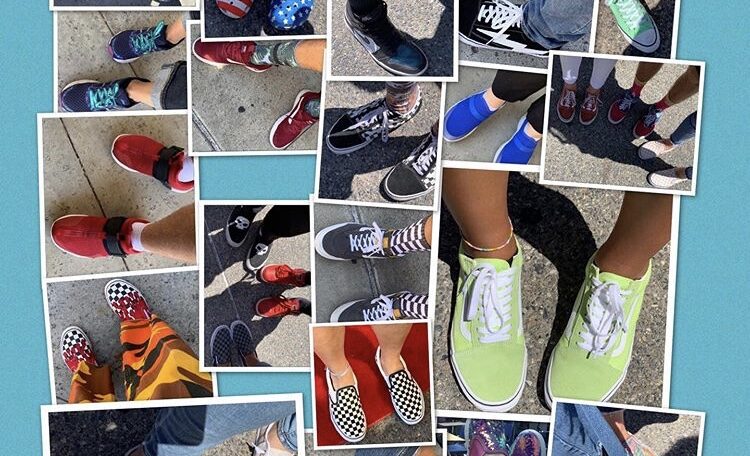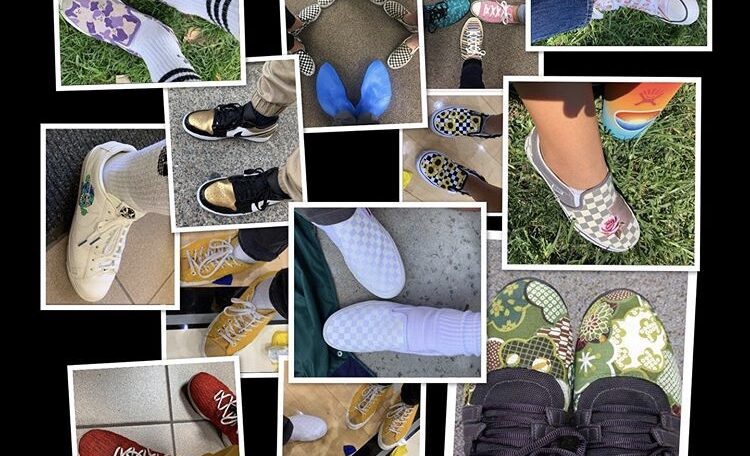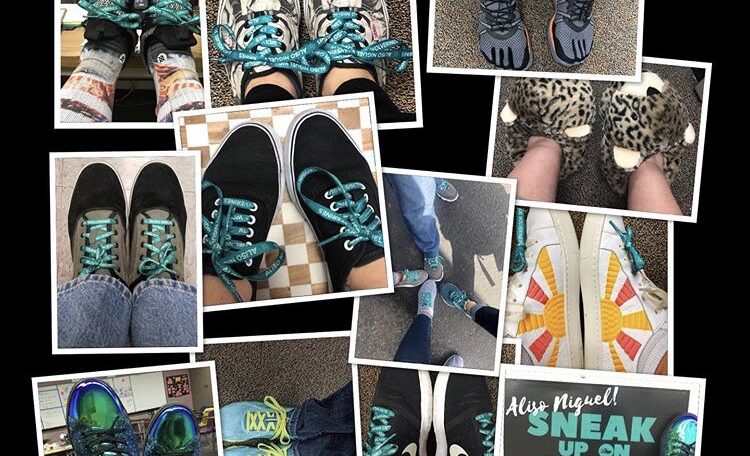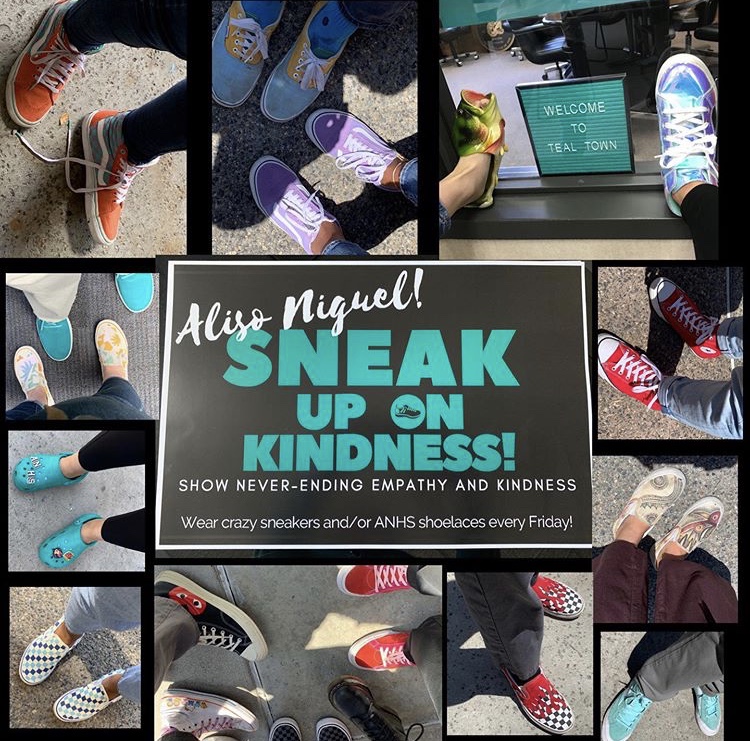The high school principal stacked a pile of folding boxes into her arms and carefully walked toward a nearby classroom to deliver an important message.
She pulled open the door, glanced at the students and looked down at their feet.
The room fell silent.
“Congratulations to you all for winning today’s ‘SNEAK Up On Kindness’ class competition and having the highest participation in wearing funny shoes!” said Aliso Niguel High School Principal Deni Christensen to the third period class. “So, here’s free pizza and please commit to doing something kind today.”
The group of Wolverines cheered.
“Isn’t she the best?” asked Spanish teacher Don Pedro Butler to applause.
Set foot on the Aliso Niguel High School campus and you’ll see for yourself.
On Fridays, you’ll spot Christensen, staff members, teachers, and students wearing crazy shoes or brightly colored shoelaces.

The zany fun aims to raise awareness for a good cause: Kindness.
It all started one night when Christensen woke up thinking about how to improve kindness on campus.
She wanted to design a program that would promote positive behavior, a message that has the chance to influence school culture for the better, making kindness, empathy, inclusion, and acceptance as an everyday thing.
This school year, she kicked off the campus-wide initiative.
It’s “SNEAK Up on Kindness” and it stands for “Show Never-ending Empathy and Kindness”.

Each week, students are asked to commit to one act of kindness per day, and every Monday, staff members provide weekly goals.
They share examples of what students can do, such as holding the door open for someone, introducing themselves to someone new and inviting someone to have lunch at their table, to sending a nice compliment text to two friends, writing a thank you note to someone, and offering to help a classmate who is struggling. It can even be as simple as smiling and saying “hi” to others.
Then, every Friday, students and staff are asked to wear crazy, colorful shoes – or teal shoelaces because of the school’s colors – in support of campus kindness. Christensen draws weekly prizes for participation and quarterly prizes among students with the highest weekly participation rates.
“Kids these days are under a lot of stress and anxiety for different reasons and just looking at social media there is a lot of negativity – there are more likes for something snarky than kind,” Christensen said in her office. “I believe all kids are good and we have to tap into that goodness. Let’s face it – adults are not always giving the best example. If we can make our school a softer place for students to land, we will have a kinder campus – and world – for everyone.”

Since the campaign’s launch, Christensen said she has witnessed students act in kind ways by seeing them go up to others, smile more, and make better eye contact. She’s also heard feedback from faculty and staff saying there is kindness in the air, and they all envision a decrease in student discipline interventions.
By starting with kindness, Christensen said it lays a foundation of respect and shared responsibility, building a strong campus and community where bullying is less likely to take root.
A kinder school environment leads to happier, healthier, and more engaged students, she said, and it’s more nurturing and welcoming to all students, particularly to students who may be struggling.
Studies show that when kindness is ingrained in school culture, students are less likely to bully or be bullied, and more likely to be engaged and connected to their peers. Other benefits include reduced stress and depression, better concentration, and improved self-esteem.
“Kindness doesn’t cost a lot of money and time – it just takes a mindset,” Christensen said. “I feel that when people do kind things, it just changes the outlook on your life. Let’s start here, make it a kinder place and let’s start today.”


